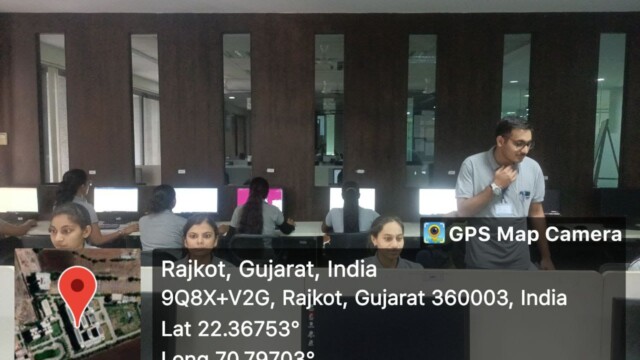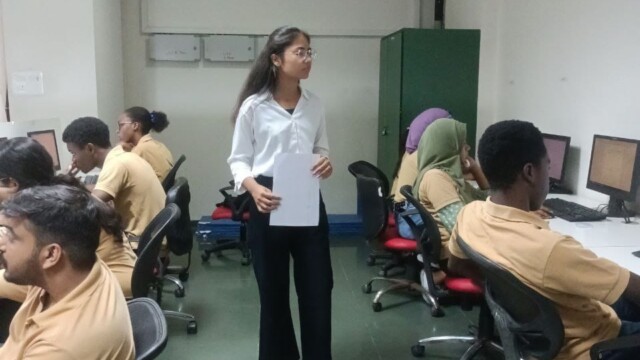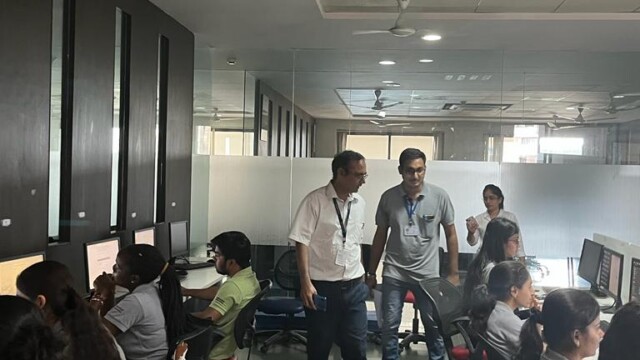Microbiology stands as a cornerstone in the realm of biology, often underestimated but profoundly impactful. It’s the study of tiny organisms that are all around us, invisible to the naked eye yet shaping our world in significant ways. Microbiologists are detectives, delving into the mysteries of these microscopic beings to unravel their roles in disease prevention, agricultural advancements, and environmental conservation.
Through microbiology, we gain insights into the intricate web of life, understanding how microorganisms interact with their surroundings and influence everything from soil fertility to human health. This field isn’t just about identifying bacteria or viruses; it’s about deciphering their behaviours, their relationships with other organisms, and their potential applications in various industries.
For those intrigued by the secrets of this unseen world, Marwadi University offers an exceptional MSc in Microbiology program. Situated in Gujarat, MU stands out as one of the premier institutions for pursuing advanced studies in this field. With its innovative curriculum and dedicated faculty, MU provides a nurturing environment for aspiring microbiologists to thrive and make significant contributions to science and society.
Microbiology holds immense significance in our lives. In this blog, we’ll explore why microbiology matters and how it impacts various aspects of our lives.
Disease Prevention and Treatment
- Microbiology plays a crucial role in understanding and combating diseases caused by microorganisms.
- Through microbiology, scientists identify pathogens, study their behaviors, and develop effective vaccines and treatments.
- For example, the discovery of antibiotics like penicillin revolutionised medicine, saving countless lives by combating bacterial infections.
Agricultural Advancements
- Microbes are essential for soil health, plant growth, and pest control in agriculture.
- Microbiologists study beneficial microbes that enhance soil fertility and help plants absorb nutrients.
- Additionally, microbial pesticides offer sustainable alternatives to chemical pesticides, reducing environmental impact.
Environmental Conservation
- Microorganisms play key roles in environmental processes such as nutrient cycling and waste decomposition.
- Microbiologists investigate microbial communities in soil, water, and air to understand ecosystem dynamics.
- Bioremediation, using microbes to clean up pollutants, is a promising approach for mitigating environmental contamination.
Food Production and Safety
- Microbes are involved in food fermentation, preservation, and spoilage.
- Microbiologists ensure food safety by monitoring for harmful pathogens and developing methods to prevent contamination.
- Understanding microbial ecosystems in food production facilities helps optimise processes and minimise risks.
Biotechnology and Industrial Applications
- Microbes are valuable sources of enzymes, biofuels, pharmaceuticals, and other bioproducts.
- Microbiologists engineer microbes for industrial processes, such as biofuel production and bioremediation.
- Biotechnology innovations, like genetic engineering and synthetic biology, harness microbial capabilities for diverse applications.
How Microbiology Shapes our Daily Lives?
Microbiology is everywhere in our daily lives, quietly making a big difference. It’s behind so many things we use and enjoy, from the food we eat to the products we use. For example, think about the yogurt in your breakfast or the cheese on your pizza—microorganisms play a crucial role in making them.
Have you ever wondered how milk turns into yogurt? It’s all thanks to bacteria like Lactobacillus, which turn milk sugars into lactic acid, giving yogurt its tangy taste. And when you’re biting into a fluffy loaf of bread, it’s yeast that’s responsible for that rise.
But microbiology isn’t just about food. It’s also about understanding how these tiny organisms work, from their shape to how they reproduce. This knowledge helps in various industries, like medicine and biotechnology. In fact, in the future, we’ll likely see even more ways microbiology can improve our lives, from new medicines to eco-friendly solutions. So, next time you enjoy a slice of cheese or a spoonful of yogurt, remember the tiny microbes that made it all possible!
Conclusion
In conclusion, delving into the significance of microbiology unveils a world of immense importance that often goes unnoticed in our daily lives. From disease prevention to food production, microbiology’s impact is far-reaching and profound. By understanding the behaviours of microorganisms, we gain insights into how they influence our health, environment, and industries.
For those passionate about exploring this hidden realm, pursuing an MSc in Microbiology at a reputable institution like Marwadi University in Gujarat offers an exciting opportunity to delve deeper into this fascinating field. Marwadi University stands out as a premier institution, providing innovative programmes and dedicated faculty to nurture aspiring microbiologists.
As we continue to unravel the mysteries of microbiology, we unlock endless possibilities for improving human health, environmental sustainability, and technological innovation. By recognizing the significance of microbiology in our everyday lives, we gain a newfound appreciation for the unseen forces that shape our world. So, let’s continue exploring the wonders of microbiology and harnessing its power for the betterment of society and the planet.



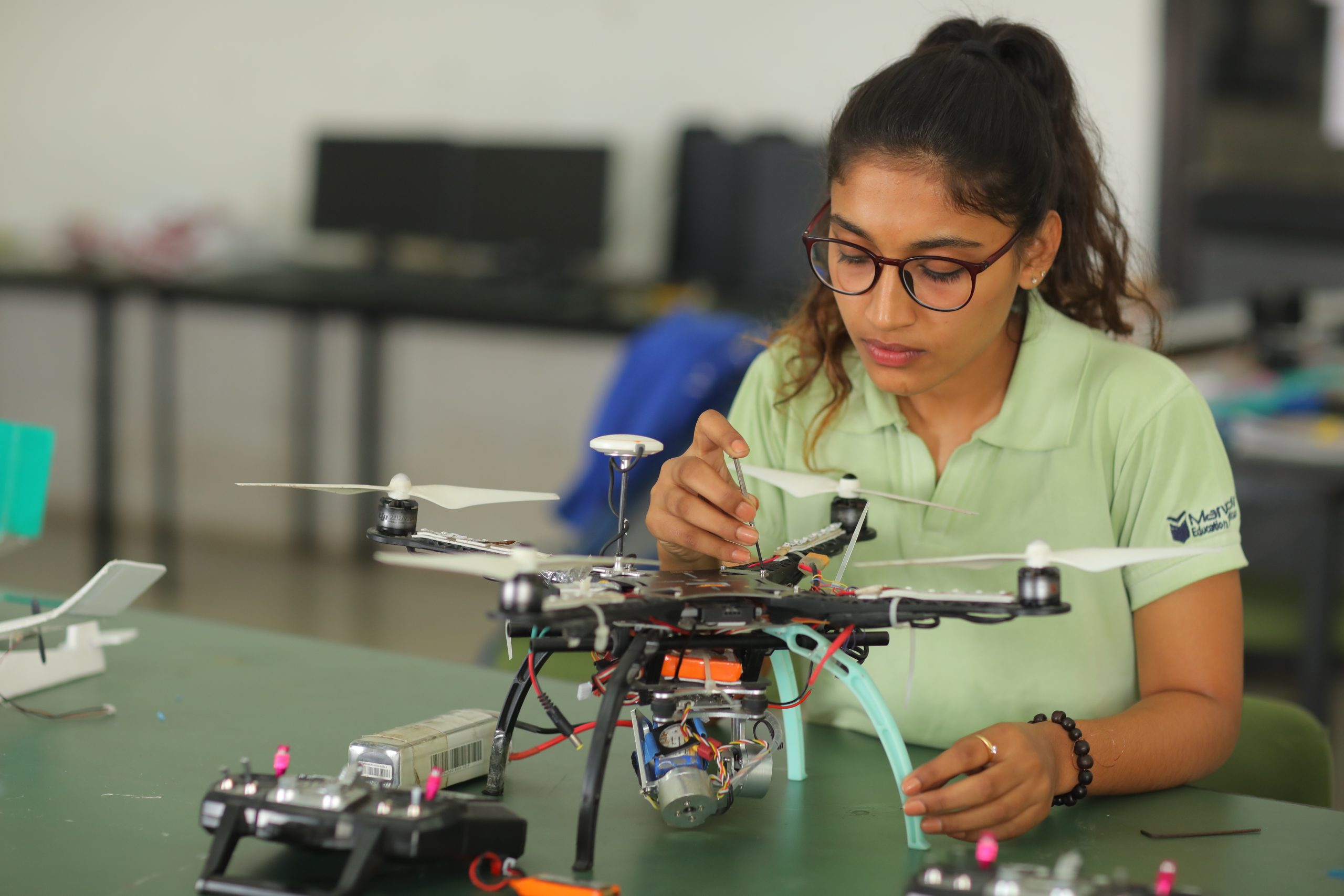


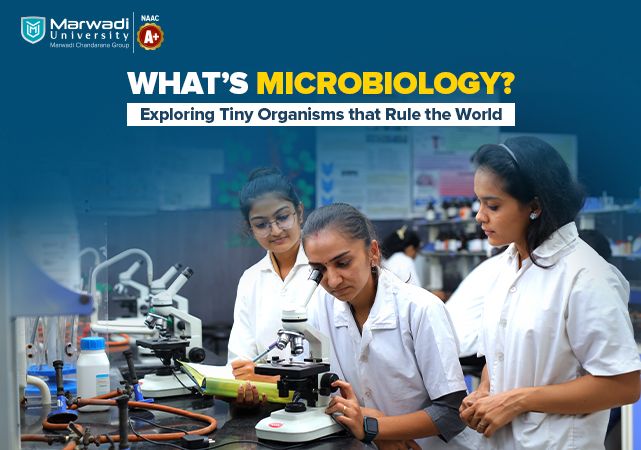









 International Airport
International Airport  Railway Station
Railway Station  GSRTC Bus Port
GSRTC Bus Port 
